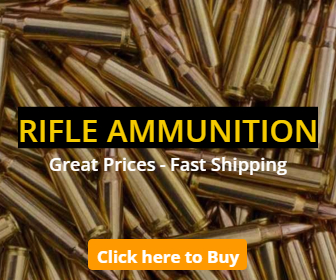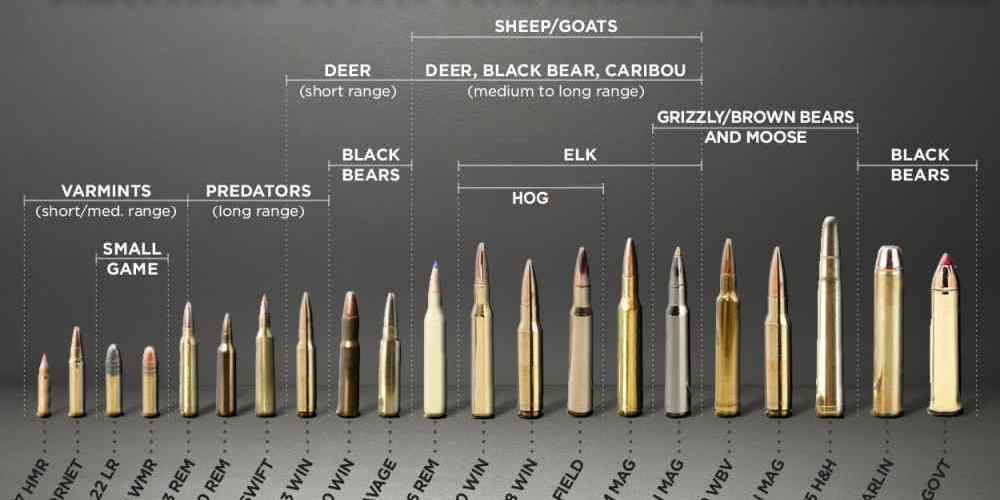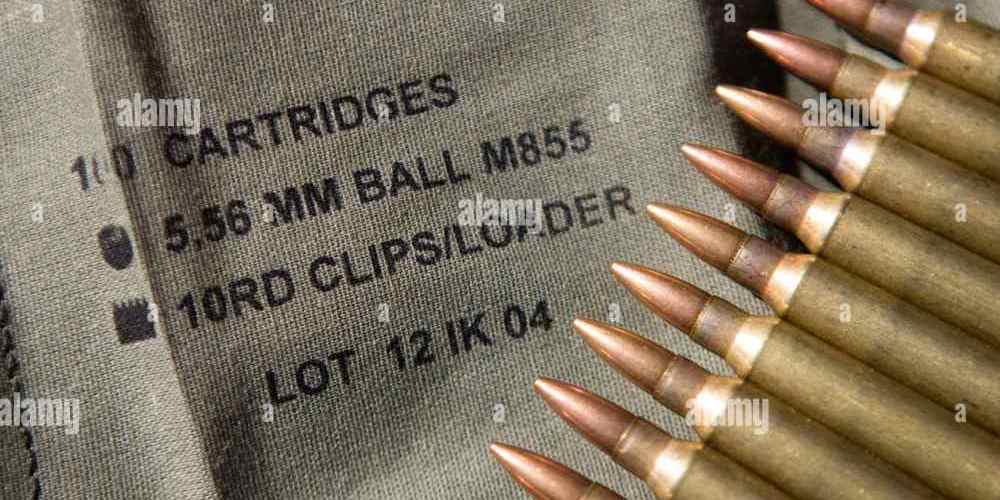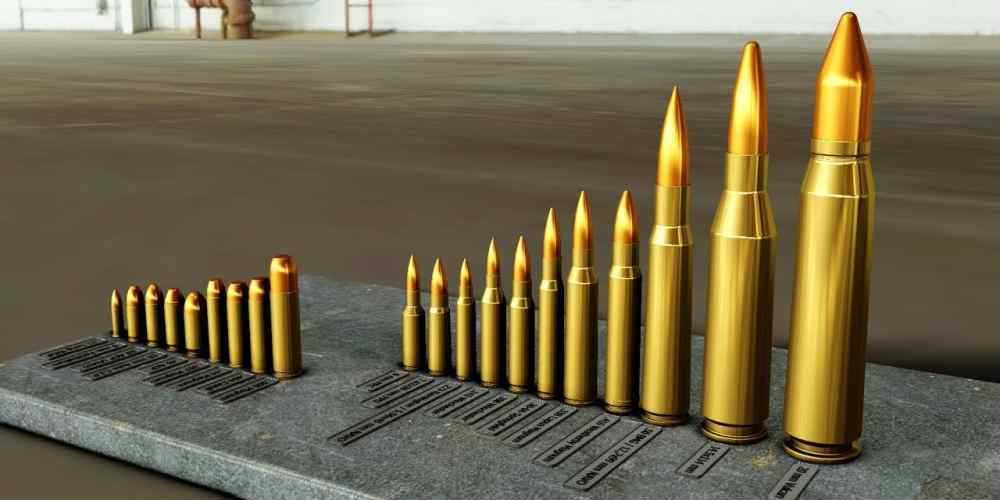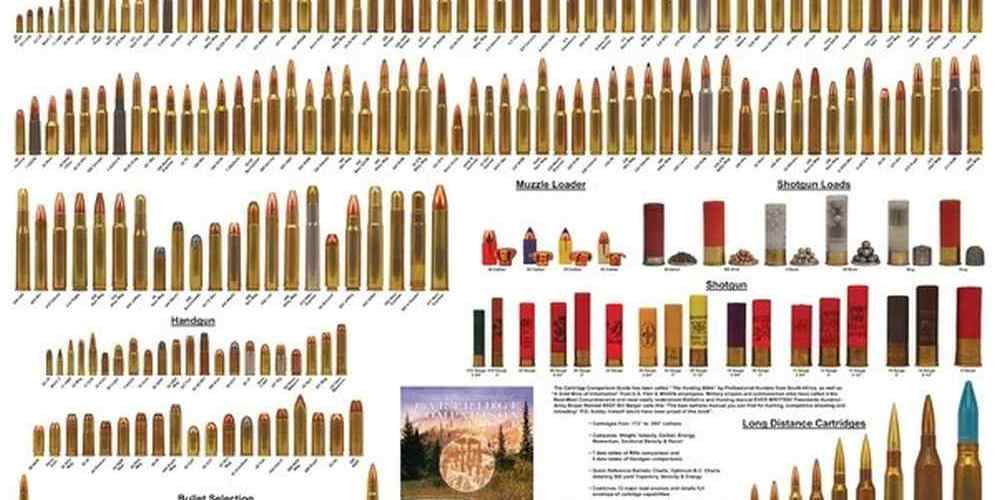“Solid or hollow, the choice is yours for precision and power.”
Pros and Cons of Solid Point Bullets
When it comes to choosing the right type of bullet for your rifle ammunition, there are a few key factors to consider. One of the most important decisions you’ll need to make is whether to go with solid point bullets or hollow point bullets. Each type has its own set of pros and cons, so it’s important to weigh them carefully before making your choice.
Solid point bullets, also known as full metal jacket bullets, are a popular choice among shooters for a number of reasons. One of the main advantages of solid point bullets is their ability to penetrate targets with ease. The hard outer casing of these bullets helps them maintain their shape and trajectory, even when passing through dense materials like bone or thick clothing.
Another benefit of solid point bullets is their reliability. Because they are encased in a jacket of harder metal, these bullets are less likely to deform or fragment upon impact. This can be especially important when hunting larger game, where a clean, ethical kill is essential.
Solid point bullets also tend to have better long-range accuracy compared to hollow point bullets. The streamlined shape of these bullets helps them maintain stability in flight, resulting in more consistent shot placement at extended distances. This can be a major advantage for competitive shooters or hunters who need to make precise shots at long range.
However, solid point bullets do have some drawbacks that shooters should be aware of. One of the main disadvantages of solid point bullets is their lack of expansion upon impact. Because the bullet remains intact as it passes through the target, it may not create as much tissue damage as a hollow point bullet would. This can be a concern for hunters who are looking to quickly incapacitate their prey.
Another potential downside of solid point bullets is their tendency to over-penetrate. In some situations, a bullet that passes completely through the target may pose a risk to bystanders or property behind the target. This is something to consider when using solid point bullets in crowded or urban environments.
In conclusion, solid point bullets offer a number of advantages, including superior penetration, reliability, and long-range accuracy. However, shooters should be aware of the potential drawbacks, such as limited expansion and over-penetration. Ultimately, the choice between solid point and hollow point bullets will depend on your specific shooting needs and preferences. It’s important to carefully consider the pros and cons of each type before making your decision.
Pros and Cons of Hollow Point Bullets
When it comes to choosing the right ammunition for your rifle, one of the decisions you’ll need to make is whether to go with solid or hollow point bullets. Both types have their own set of pros and cons, so it’s important to understand the differences between them before making a decision.
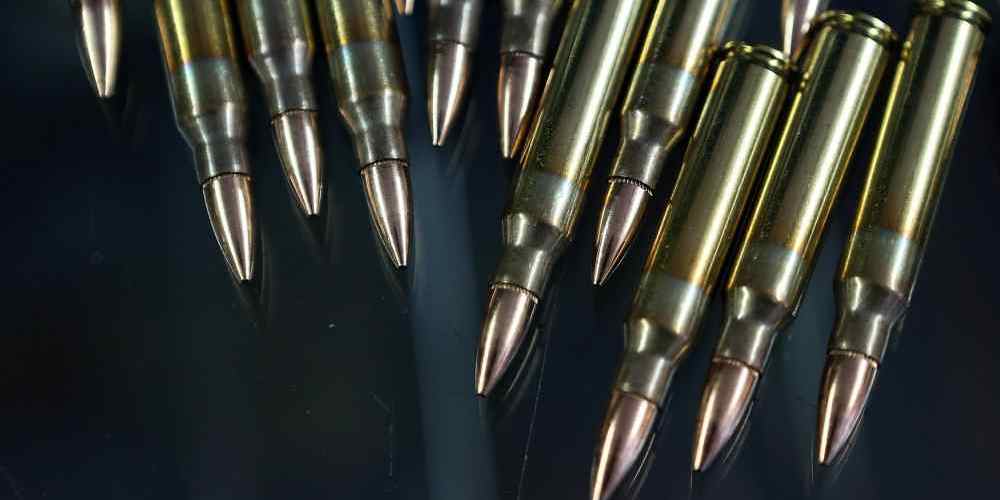
Hollow point bullets are designed with a hollowed-out tip that causes the bullet to expand upon impact. This expansion creates a larger wound channel, which can be more effective at stopping a threat. Hollow point bullets are often preferred for self-defense and hunting purposes because of their ability to deliver maximum stopping power.
One of the main advantages of hollow point bullets is their ability to transfer energy more effectively upon impact. This can result in quicker incapacitation of a threat, which is crucial in self-defense situations. Additionally, the expansion of the bullet can help to prevent over-penetration, reducing the risk of collateral damage.
Another benefit of hollow point bullets is their accuracy. The expansion of the bullet upon impact can help to stabilize its flight path, resulting in more consistent and precise shots. This can be especially important for hunters who need to make clean and ethical kills.
However, there are also some drawbacks to using hollow point bullets. One of the main concerns is their potential for clogging, especially when shooting through barriers such as clothing or glass. If the hollow point cavity becomes clogged, the bullet may fail to expand properly upon impact, reducing its effectiveness.
Another issue with hollow point bullets is their cost. Hollow point ammunition tends to be more expensive than solid point ammunition, which can be a deterrent for some shooters. Additionally, hollow point bullets may not be as readily available as solid point bullets, making them harder to find in certain calibers.
Despite these drawbacks, many shooters still prefer hollow point bullets for their superior stopping power and accuracy. Ultimately, the decision between solid and hollow point bullets will depend on your specific needs and preferences.
In conclusion, hollow point bullets offer several advantages over solid point bullets, including increased stopping power, accuracy, and reduced risk of over-penetration. However, they also come with some drawbacks, such as potential clogging and higher cost. When choosing between solid and hollow point bullets for your rifle ammunition, it’s important to weigh these factors carefully and consider how they align with your shooting goals. Ultimately, the best choice will depend on your individual needs and preferences.
Effectiveness of Solid Point Bullets in Rifle Ammunition
When it comes to choosing the right type of bullet for your rifle ammunition, there are a few key factors to consider. One of the most important decisions you’ll need to make is whether to go with solid point or hollow point bullets. Both types have their own advantages and disadvantages, so it’s important to understand the differences between them before making a decision.
Solid point bullets, also known as full metal jacket bullets, are typically made with a lead core that is completely encased in a harder metal, such as copper. This design helps to improve the bullet’s penetration and allows it to retain its shape as it travels through the target. Solid point bullets are often favored for their ability to punch through barriers, such as thick clothing or car doors, without losing their effectiveness.
One of the main advantages of solid point bullets is their ability to maintain their trajectory and accuracy over long distances. Because the bullet is designed to retain its shape, it is less likely to deform or fragment upon impact, which can help to ensure a clean and effective shot. This makes solid point bullets a popular choice for long-range shooting and hunting applications where precision is key.
Another benefit of solid point bullets is their ability to deliver consistent and reliable performance. Because the bullet is encased in a harder metal jacket, it is less likely to experience deformation or expansion upon impact, which can help to ensure that the bullet delivers maximum energy to the target. This can be especially important when hunting larger game or when shooting in challenging conditions where shot placement is critical.
However, solid point bullets do have some drawbacks to consider. One of the main disadvantages of solid point bullets is their limited ability to expand upon impact. Because the bullet is designed to retain its shape, it may not create as large of a wound cavity as a hollow point bullet, which can make it less effective for stopping a threat quickly. This can be a concern in self-defense situations where stopping power is a top priority.
In conclusion, solid point bullets offer a number of advantages when it comes to rifle ammunition. Their ability to maintain trajectory and accuracy over long distances, as well as their consistent and reliable performance, make them a popular choice for many shooters. However, it’s important to weigh these benefits against the potential drawbacks, such as limited expansion upon impact, before making a decision. Ultimately, the choice between solid point and hollow point bullets will depend on your specific needs and preferences as a shooter.
Effectiveness of Hollow Point Bullets in Rifle Ammunition
When it comes to choosing the right type of ammunition for your rifle, one of the key decisions you’ll need to make is whether to go with solid or hollow point bullets. Both types have their own advantages and disadvantages, so it’s important to understand the differences between them before making a decision.
Solid point bullets are exactly what they sound like – solid pieces of metal that are designed to penetrate their target without expanding. These bullets are typically used for hunting larger game, as they are able to penetrate deep into the animal’s body and cause significant damage. However, solid point bullets can also over-penetrate, meaning they may pass through the target without transferring all of their energy, potentially causing collateral damage.
On the other hand, hollow point bullets are designed to expand upon impact, creating a larger wound channel and transferring more energy to the target. This makes them ideal for self-defense situations, as they are more likely to stop an attacker in their tracks. Hollow point bullets are also less likely to over-penetrate, reducing the risk of injuring bystanders or damaging property.
In terms of effectiveness, hollow point bullets are generally considered to be superior to solid point bullets in most situations. The expansion of the bullet upon impact creates a larger wound channel, increasing the likelihood of hitting vital organs and stopping the target quickly. This can be especially important in self-defense scenarios, where stopping power is crucial.
Additionally, hollow point bullets are less likely to over-penetrate, reducing the risk of causing unintended harm. This can be particularly important in urban environments or other situations where bystanders may be present. By choosing hollow point bullets, you can help ensure that your shots are more likely to hit their intended target and stop the threat without causing unnecessary collateral damage.
Of course, there are some situations where solid point bullets may be more appropriate. For example, if you are hunting larger game and need a bullet that can penetrate deep into the animal’s body, a solid point bullet may be the better choice. Solid point bullets are also less likely to be affected by barriers such as glass or metal, making them a good option for shooting through obstacles.
Ultimately, the choice between solid and hollow point bullets will depend on your specific needs and the intended use of your rifle. If you are primarily using your rifle for self-defense or home defense, hollow point bullets are likely the better option. However, if you are hunting larger game or need a bullet that can penetrate barriers, solid point bullets may be more appropriate.
In conclusion, hollow point bullets are generally considered to be more effective than solid point bullets in rifle ammunition. Their ability to expand upon impact creates a larger wound channel and transfers more energy to the target, making them ideal for self-defense situations. However, there are some situations where solid point bullets may be more appropriate, so it’s important to consider your specific needs before making a decision. Ultimately, the choice between solid and hollow point bullets will depend on your intended use and the type of target you are shooting at.
Considerations for Choosing Between Solid and Hollow Point Bullets
When it comes to choosing the right ammunition for your rifle, one of the key decisions you’ll need to make is whether to go with solid or hollow point bullets. Both types have their own advantages and disadvantages, so it’s important to understand the differences between them before making a decision.
Solid point bullets, also known as full metal jacket bullets, are typically made with a lead core that is completely encased in a harder metal, such as copper. This design helps the bullet maintain its shape and penetrate through barriers more effectively than hollow point bullets. Solid point bullets are also less likely to deform upon impact, which can result in more consistent accuracy.
On the other hand, hollow point bullets are designed to expand upon impact, creating a larger wound channel and transferring more energy to the target. This can be particularly useful for hunting or self-defense situations, where stopping power is crucial. The expansion of hollow point bullets also helps to prevent over-penetration, reducing the risk of collateral damage.
When deciding between solid and hollow point bullets, it’s important to consider the intended use of the ammunition. If you’re primarily using your rifle for target shooting or competition, solid point bullets may be the better choice due to their superior penetration and accuracy. However, if you’re using your rifle for hunting or self-defense, hollow point bullets may be more effective at quickly incapacitating your target.
Another factor to consider when choosing between solid and hollow point bullets is the type of game you’ll be hunting. Hollow point bullets are generally more effective at taking down larger game, as they create a larger wound channel and transfer more energy upon impact. Solid point bullets, on the other hand, may be better suited for smaller game or varmint hunting, where penetration is more important than expansion.
It’s also worth noting that some ranges and hunting regulations may have restrictions on the type of ammunition you can use. Hollow point bullets are often prohibited at indoor shooting ranges due to their potential for causing excessive damage to backstops. Additionally, some states have restrictions on the use of hollow point bullets for hunting certain types of game.
Ultimately, the choice between solid and hollow point bullets comes down to personal preference and the specific requirements of your shooting activities. If you’re unsure which type of ammunition is best for your needs, consider testing both solid and hollow point bullets at the range to see how they perform in your rifle. Pay attention to factors such as accuracy, penetration, and expansion to determine which type of bullet is most effective for your purposes.
In conclusion, both solid and hollow point bullets have their own advantages and disadvantages, so it’s important to carefully consider your shooting needs before making a decision. Whether you’re looking for maximum penetration and accuracy or superior stopping power and expansion, there’s a type of ammunition that’s right for you. By understanding the differences between solid and hollow point bullets, you can make an informed choice that will help you get the most out of your rifle.


